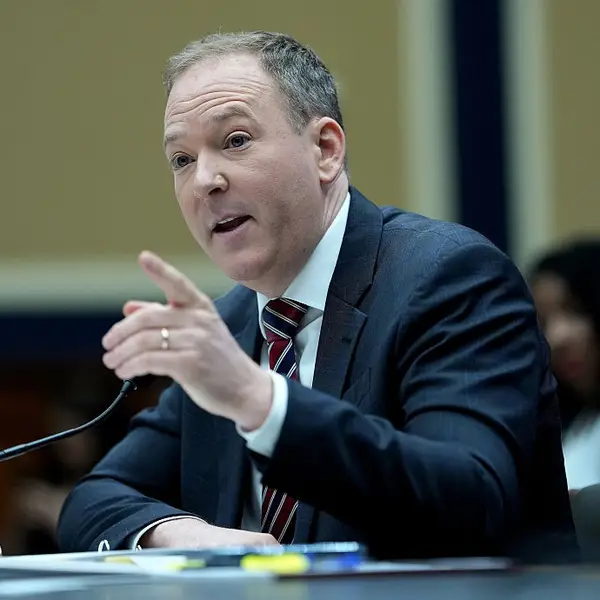As European officials on Wednesday weigh whether or not to re-approve the use of Monsanto's glyphosate, a storm has erupted after the World Health Organization (WHO) seemingly flipped in its assessment of the dangers posed by the chemical.
Ahead of this week's European Commission meeting, which could approve the use of glyphosate for up to nine years, the United Nation's Food and Agriculture Organization (FAO) and the WHO released a joint summary report concluding that the chemical, a favored ingredient of agrochemical producers like Monsanto and Dow, was "unlikely to pose a carcinogenic risk to humans from exposure through the diet."
These findings were widely (and inaccurately) reported as a "clean bill of health" for a pesticide once declared to be "probably carcinogenic" for humans by the WHO's International Agency for Research on Cancer (IARC).
What's more, documents obtained by the anti-GMO watchdog group U.S. Right to Know found that one of the chairs of the UN's Joint Meeting on Pesticide Residues (JMPR) had, in another capacity, received a six-figure donation from Monsanto.
The Guardian reported on Tuesday:
Professor Alan Boobis, who chaired the UN's joint FAO/WHO meeting on glyphosate, also works as the vice-president of the International Life Science Institute (ILSI) Europe. The co-chair of the sessions was Professor Angelo Moretto, a board member of ILSI's Health and Environmental Services Institute, and of its Risk21 steering group too, which Boobis also co-chairs.
In 2012, the ILSI group took a $500,000 (PS344,234) donation from Monsanto and a $528,500 donation from the industry group Croplife International, which represents Monsanto, Dow, Syngenta and others, according to documents obtained by the US right to know campaign.
Those opposed to the chemical's re-approval in Europe said the exposed "conflict of interest" in the FAO/WHO report should disqualify it from consideration. The EU's deliberations, which are expected to last two days, were postponed in March after a wave of public opposition forced lawmakers to renege on their approval.
"The timing of the release of this report by the FAO/WHO could be described as cynical if it weren't such a blatantly political and ham-fisted attempt to influence the EU decision later this week on the approval of glyphosate," said Green MEP Bart Staes.
"Any decision affecting millions of people should be based on fully transparent and independent science that isn't tied to corporate interests," said Greenpeace EU food policy director Franziska Achterberg. "It would be irresponsible to ignore the warnings on glyphosate and to re-licence this pesticide without any restrictions to protect the public and the environment."
Pointing to the discrepancy between the various reports on the toxicity of glyphosate, The Intercept's Sharon Lerner noted Tuesday that what distinguished the WHO's March 2015 study, which concluded with a cancer warning, is that it used research "on both glyphosate alone as well as the complete formations of Roundup and other herbicides," which included the impact of supposedly "inert" ingredients.
"Research on these chemicals seems to have played a role in the stark disagreement over glyphosate's safety that has played out on the international stage over the last year," she writes.
As Lerner noted in the in-depth report, scientific study of these other ingredients has been hampered by biochemical giants claiming industry secrets, though there is increasing evidence that the combination of chemicals could be very harmful to human health.
Lerner reports:
Independent scientists have been reporting since at least 1991 that pesticides containing glyphosate along with other ingredients were more dangerous than glyphosate on its own. More recently, two papers -- one published in 2002, the other in 2004 -- showed that Roundup and other glyphosate-containing weed formulations were more likely to cause cell-cycle dysregulation, a hallmark of cancer, than glyphosate alone. In 2005, researchers showed that Roundup was more harmful to rats' livers than its "active ingredient" by itself. And a 2009 study showed that four formulations of Roundup were more toxic to human umbilical, embryonic, and placental cells than glyphosate by itself.
But because manufacturers of weed killers are required to disclose only the chemical structures of their "active" ingredients -- and can hide the identity of the rest as confidential business information -- for many years no one knew exactly what other chemicals were in these products, let alone how they affected health.
As for the European Commission's negotiations, an early draft report proposed banning at least one potentially toxic co-formulant (polyethoxylated tallowamine, or POEA) though many other unknown chemicals remain in the glyphosate-based pesticides.
"The decision on glyphosate is a critical test of who's interests the EU is acting on," said Aisha Dodwell, a food campaigner with Global Justice Now.
"On one side," Dodwell continued, "there are powerful agribusiness companies like Monsanto, whose Roundup weed killer contains glyphosate and accounts for a third of its total sales. And on the other side you have over a million citizens from across the EU who have signed petitions saying that they don't want to be exposed to chemicals that are probably causing cancer."



